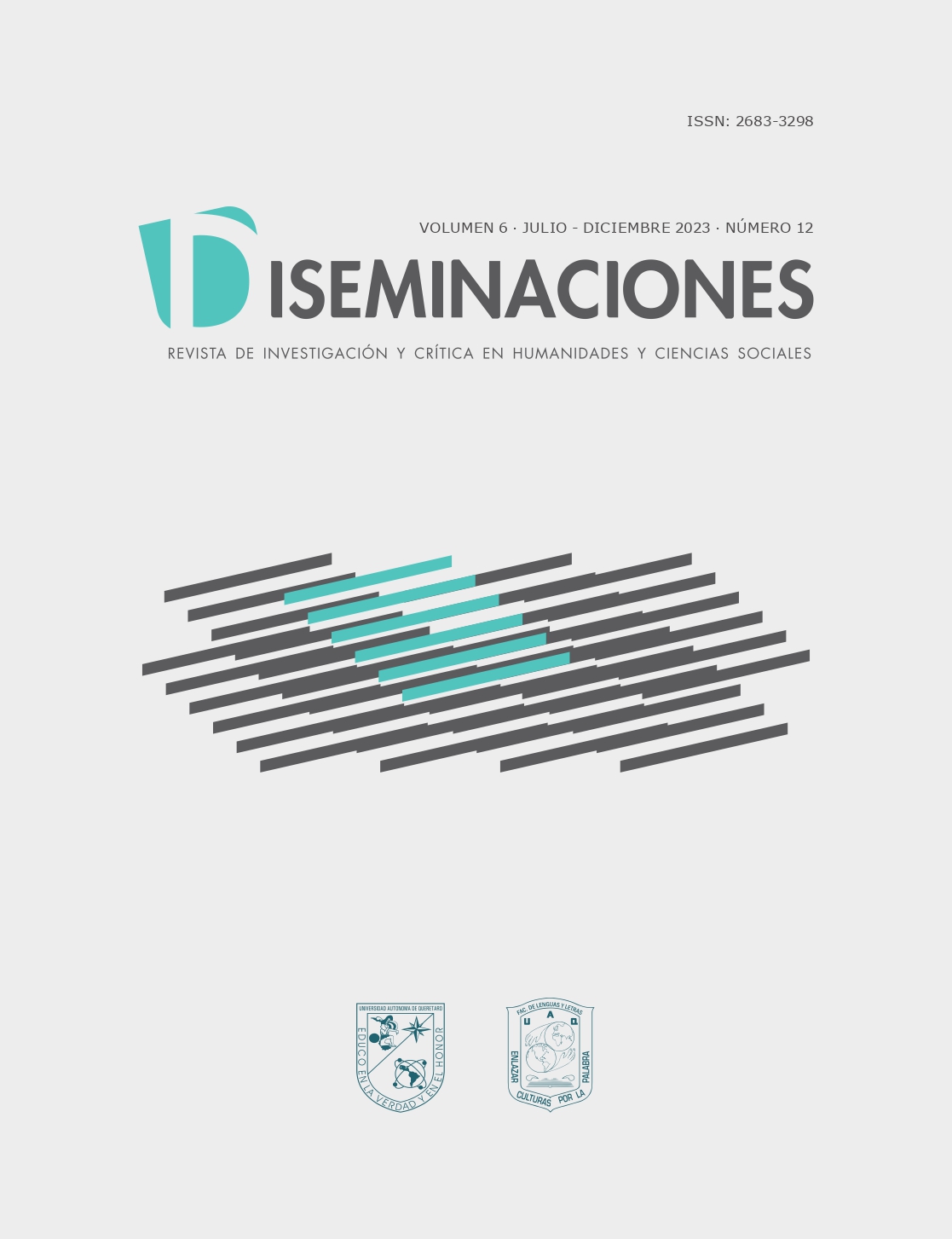Abstract
The following article, based on ethnographic information collected in the field, from 2013 to 2023, in the municipality of San Sebastián Tlacotepec, presents an approach to the non-linear relationships involved in the configuration of peasant knowledge from a dialogue of knowledge. It analyzes how from the bonds of reciprocity and familiarity with human and non-human beings, strategies of resistance to capital, patriarchal and colonial modernity are built. The knowledge that is constructed in this context is not detached from the people who produce it, nor from their natural environment. The testimonies and experiences of the Nahuas of the Sierra Negra de Puebla allow us to problematize this category, not from a productivist posture that seeks to equate it to scientific knowledge to validate it, but from its affective and cosmogonic dimension in constant dialogue with the territory and memory.
References
Barranco Torres, N. (2003). “Presencia mazateca en el sur del estado de Puebla”. En E. Masferrer-Kan, G. Vences-Ruiz, N. Barranco-Torres, E. Díaz- Brenis y J. Mondragón- Melo (Eds.), Etnografía del Estado de Puebla. (pp. 232-253). Puebla: Secretaría de Cultura del Estado de Puebla.
Benjamin, W. (2008). Tesis sobre la historia y otros fragmentos. Ciudad de México: Universidad Autónoma de la Ciudad de México/ÍTACA
Boada, M. y Toledo, V. (2003). El planeta, nuestro cuerpo. La ecología, el ambientalismo y la crisis de la modernidad. Ciudad de México: Fondo de Cultura Económica/SEP/CONACYT.
Sousa De, B. (2010). Refundación del Estado en América Latina: perspectivas desde una epistemología del Sur. Quito: Editorial Abya-Yala.
Data México. (2023). Acerca de San Sebastián Tlacotepec. Secretaría de Economía. https://www.economia.gob.mx/datamexico/es/profile/geo/san-sebastian-tlacotepec#:~:text=La%20poblaci%C3%B3n%20total%20de%20San,%25%20mujeres%20y%2049.2%25%20hombres
Díaz, G., Núñez, I. y Ortíz, P. (2011). “Interculturalidad, saberes campesinos y educación”. En A. Argueta, E. Corona y P. Hersch (Eds.), Saberes colectivos y diálogo de saberes en México (pp. 235-255). Ciudad de México: Universidad Nacional Autónoma de México.
Echeverría, B., (2020). “El ángel de la historia y el materialismo histórico”. Estudios Artísticos: revista de investigación creadora, 6(8), pp. 96-104.
Larrosa, J. (2006). “Sobre la experiencia”. Aloma. Revista de Psicologia i Ciències de l'Educació, (19), pp. 87-112.
Ortiz, P. (2009). Conocimientos campesinos y prácticas agrícolas en el centro de México Hacia una antropología plural del saber. Ciudad de México: Universidad Autónoma Metropolitana Unidad Iztapalapa.
Quijano, A. (2000). “Colonialidad del poder y clasificación social”. Journal of World Systems Research, 6(2), pp. 342-86.
Romero, L. (2020). Saber ver, Saber soñar. El proceso de iniciación y aprendizaje de los curanderos nahuas de San Sebastián Tlacotepec. Puebla: Universidad de las Américas Puebla.
Rosas, T. (2013). “La epistemología náhuatl y la descolonización desde las lenguas originarias”. En S. Hernández, M. Ramírez, Y. Manjarrez y A. Flores (Coords.), Educación Intercultural a nivel superior: Reflexiones desde diversas realidades latinoamericanas (pp. 81-95). Puebla: Universidad Intercultural del Estado de Puebla.
Staroselsky, T. (2020). “Una flor imposible: Walter Benjamin y la experiencia en crisis”. Resistances. Journal of the Philosophy of History, 1(1), pp. 9-2. https://www.memoria.fahce.unlp.edu.ar/art_revistas/pr.12424/pr.12424.pdf
Toledo, V. M., y Alarcón-Cháires, P. (2012). “La Etnoecología hoy: Panorama, avances, desafíos”. Etnoecológica, 9(1), pp. 1-16.

This work is licensed under a Creative Commons Attribution 4.0 International License.
Copyright (c) 2023 Diseminaciones


